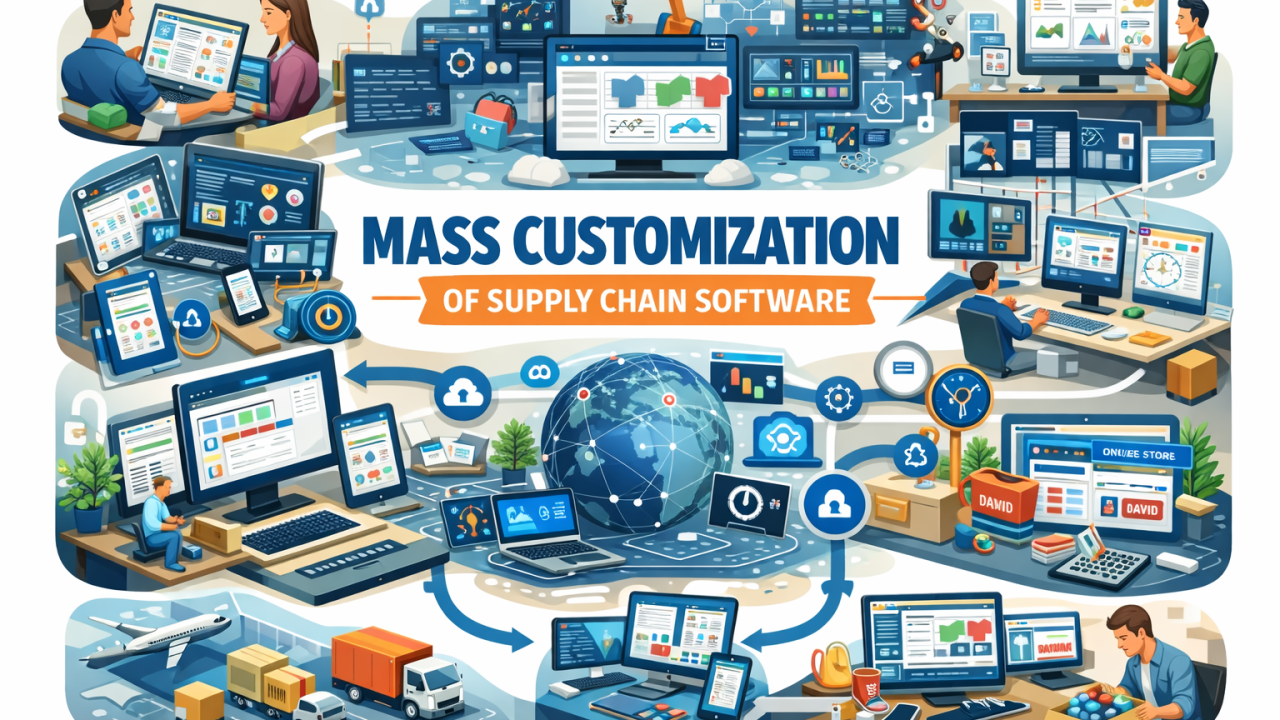Now is the time to be thinking about supply chain success in 2024. Optimizing your company’s supply chain to drive maximum efficiency and cost savings over the next few years is no easy feat. Still, the good news is that Firstshift brings technologies and best practices to make it possible to build a supply chain that’s faster, smarter, and more responsive than ever before.
We’ll explore the key innovations to unlock supply chain success in 2024 and beyond. From AI and automation to blockchain and holistic risk management, the tools at your disposal are more powerful than anything we’ve seen before. But technology is only part of the story.
Collaboration, agility, and sustainability will also be essential to building a world-class supply chain. The future is bright if you start planning today. Read on to find out what it will take to achieve supply chain success in 2024.
The Digital Supply Chain Revolution: Automation and AI for Supply Chain Success in 2024
AI will have a huge impact on making supply chains more responsive. We expect 2024 to be the breakout year for leveraging AI in supply chains. As a supply chain leader, you must prepare now to unlock the benefits of AI-enabled supply chain planning.
Automate repetitive tasks
Automate as many repetitive, routine tasks as possible, like tracking shipments, processing orders, and managing inventory. Not only does automation reduce errors, it frees up your resources to focus on strategic work.
AI-driven business intelligence
Though many companies have invested heavily in business intelligence tools, they often find their planners and analysts sifting through data on spreadsheets and looking for the “needle in the haystack”. AI-driven anomaly detection and alerting as well as AI driven recommendations can help planners focus on supply chain issues that need immediate attention and take corrective action faster.
Collaborate in the digital ecosystem
Your suppliers, logistics providers, and customers are digitally connected in an ecosystem. Ensure your systems are interoperable so you can collaborate seamlessly with other entities in your network. Firstshift seamlessly integrates with major platforms and connects via APIs.
The digital supply chain revolution is here. Take steps now to implement AI and automation in your operations. You’ll be poised for supply chain success in 2024 and beyond with the right technologies and strategies.
Machine Learning and Predictive Analytics Transform Supply Chain Management
Machine learning and predictive analytics are transforming supply chain management. Companies leveraging these technologies gain a competitive advantage with optimized, data-driven supply chains.
Machine Learning Improves Forecasting
Machine learning algorithms analyze huge amounts of data to detect complex patterns and make accurate predictions. Supply chain leaders are using ML to improve demand forecasting, anticipating customer needs more precisely. ML models get smarter over time, continuously improving forecasts.
Predictive Analytics Mitigates Risks
Predictive analytics examines data to determine the likelihood of future outcomes, helping companies mitigate risks. It can pinpoint potential supply chain disruptions and delays, allowing companies to take corrective actions in advance. Leaders are harnessing predictive analytics to reduce waste, cut costs, and build more resilient supply chains.
A More Proactive Approach
With machine learning and predictive analytics, supply chain management is becoming proactive rather than reactive. Companies can foresee challenges and spot opportunities earlier, enabling them to optimize their supply chains in a forward-looking way. In 2024, the most innovative businesses are using these technologies to turn their supply chains into a competitive advantage and driver of growth and profitability.
The future of supply chain success is data-driven and powered by AI. Machine learning and predictive analytics provide the insights companies need to boost efficiency, improve customer satisfaction, and gain a leg up on the competition. Supply chain leaders looking to unlock greater success should leverage these technologies today.
Key Takeaways for Supply Chain Leaders Looking to Future-Proof Their Operations
As a supply chain leader in 2024, several key takeaways will set you up for success:
Adaptability is Essential
The supply chain landscape is constantly evolving. Leaders must stay on the cutting edge of new technologies and strategies to adapt to changes. Keep an open and flexible mindset, ready to pivot as needed.
Data Utilization is Key
Harness the power of data and analytics to gain visibility into your supply chain. Look for trends and insights to optimize processes and address pain points. Data-driven decisions will help future-proof your operations.
Risk Management Matters
Closely monitor risks and have contingency plans in place to minimize disruptions. Natural disasters, geopolitical events, labor shortages, and more can wreak havoc on supply chains. Proactively identify, assess, and mitigate risks to build resiliency.
Sustainability is the Standard
Eco-friendly, sustainable practices are becoming the norm. Choose suppliers and transportation partners with proven sustainable operations. Implement green initiatives like reducing waste and lowering emissions in your operations. Sustainability will be vital for long-term success.
Talent Investment is Worthwhile
Attracting, developing, and retaining top talent is key. Invest in ongoing education and skills training for your teams so they are equipped to navigate the complex supply chain of the future. Competent, forward-thinking employees will drive innovation.
By following these key takeaways, supply chain leaders can future-proof their operations for success in 2024 and beyond. Building an adaptable, data-driven organization focused on risk management, sustainability, and talent investment will put you at the forefront of the industry. The supply chain of the future starts today.
Partner with Firstshift for Success
This is just a glimpse into the future of supply chain management and what it may take to succeed in 2024. The path forward will be challenging, but with the right technology partner like Firstshift, your supply chain can be poised for great things. Start today building the supply chain that will change tomorrow. Schedule a demo to get started!

.svg)

.svg)
%201.svg)

.jpg)

.svg)
.svg)
.svg)